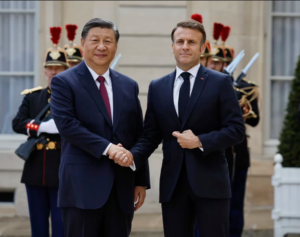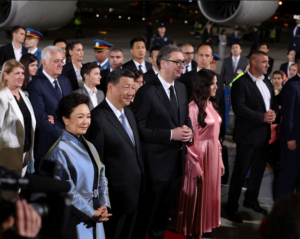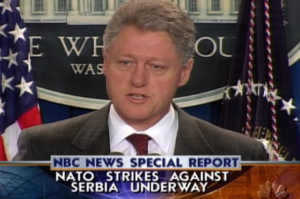Xi Jinping, the Chinese President arrived in France on Sunday for a state visit hosted by French President Emmanuel Macron where the leaders push issues from Ukraine to Trade.
Xi’s visit to France marked 60 years of diplomatic relations between the two countries. This visit to France comes after the French President visited China in April 2023. He has also planned to visit Serbia and Hungary in the complete visit.
The Chinese president was accompanied by his wife, Peng Liyuan and was welcomed under umbrellas at the Paris Orly airport by Prime Minister Gabriel Attal. The location of the meeting was at the Tourmalet Pass in the Pyrenees, near the Spanish border.
Xi held a day of talks in Paris on Monday including EU Commission chief Ursula von der Leyen, followed by a state banquet hosted by Mr. Macron.
‘Stability of international order’
Mr Macron’s priority was to move towards stability between countries and to warn Xi of the dangers of backing Russia in the war.
“It is in our interest to get China to weigh in on the stability of the international order,” said Mr Macron in an interview with the Economist published on Thursday.
“We must, therefore, work with China to build peace,” he added.
But he acknowledged in an interview with the La Tribune Dimanche newspaper that Europeans are “not unanimous” on the strategy to adopt as “certain actors still see China essentially as a market of opportunities” while it “exports massively” to Europe.
The French President also talked about their national interests and asked everyone that they shouldn’t be drawn by China and the United States and their standoff.
“The worst thing would be to think that we Europeans must be followers and adapt ourselves to the American rhythm and a Chinese overreaction,” Macron said at the time, warning against a “bloc versus bloc logic“.
Xi Jinping leads trip to Serbia
The Chinese President was welcomed with a military guard of honour on Wednesday ahead of meeting with Serbian President Aleksander Vucic and his wife Tamara Vucic.
Xi’s visit coincides with the 25th anniversary of NATO’s accidental bombing of China’s embassy in Belgrade and is part of his first European tour in five years, which included France with Hungary as the next stop.
 “We are writing history today,” Serbian President Aleksandar Vucic said while the audience chanted “China, China.”
“We are writing history today,” Serbian President Aleksandar Vucic said while the audience chanted “China, China.”
Serbia is a strong supporter of China’s Belt and Road Initiative (BRI) across parts of Europe and Asia. Vucic also said that Serbia considers the island of Taiwan, viewed by Beijing as a breakaway province, as a part of China similar to how China considers Kosovo to be a part of Serbia, which declared independence in 2008.
Serbian Finance Minister Sinisa Mali told state television on Tuesday that two leaders would sign more than 29 agreements and some commercial contracts.
Was Xi’s visit symbolic?
Xi visited Europe on the 25th anniversary of the NATO bombing of the Chinese Embassy during a campaign against the former Yugoslavia to force late Serbian strongman Slobodan Milosevic to end the crackdown on ethnic Albanians in Kosovo.
The bombing killed three journalists and wounded 20 Chinese nationals prompting Chinese outrage and apology by U.S. President Bill Clinton. “The Chinese people appreciate the peace but will never allow that a historic tragedy repeats itself,” Xi said.
This visit voiced China’s opinion and its campaign against such attacks on Chinese Civilians. This also send a signal to the Chinese citizens that their government is present to protect them. This at a time, where China is getting pushback from the West and India regarding their expansionary policies, makes it very essential to build confidence among their own citizens.










